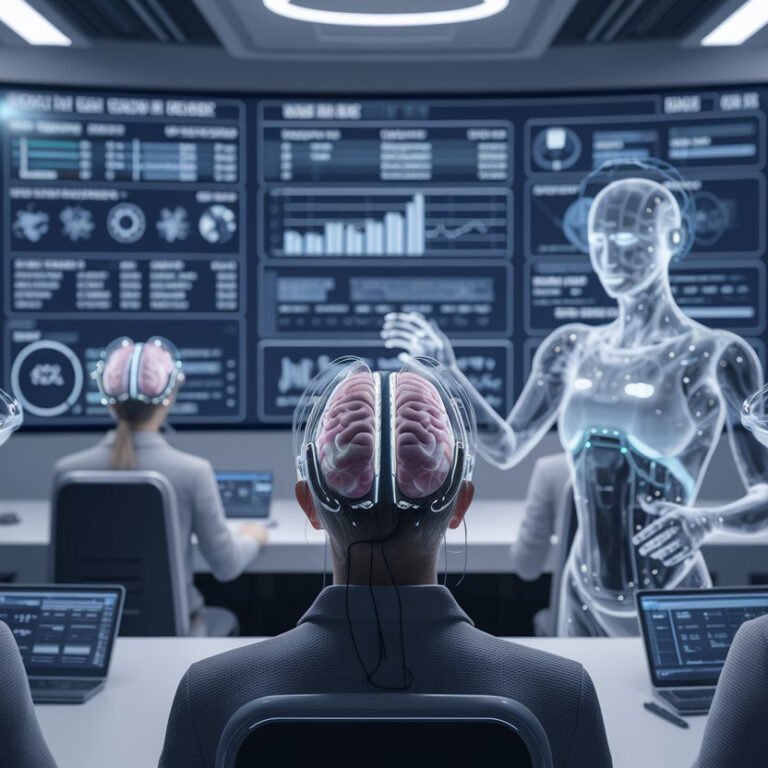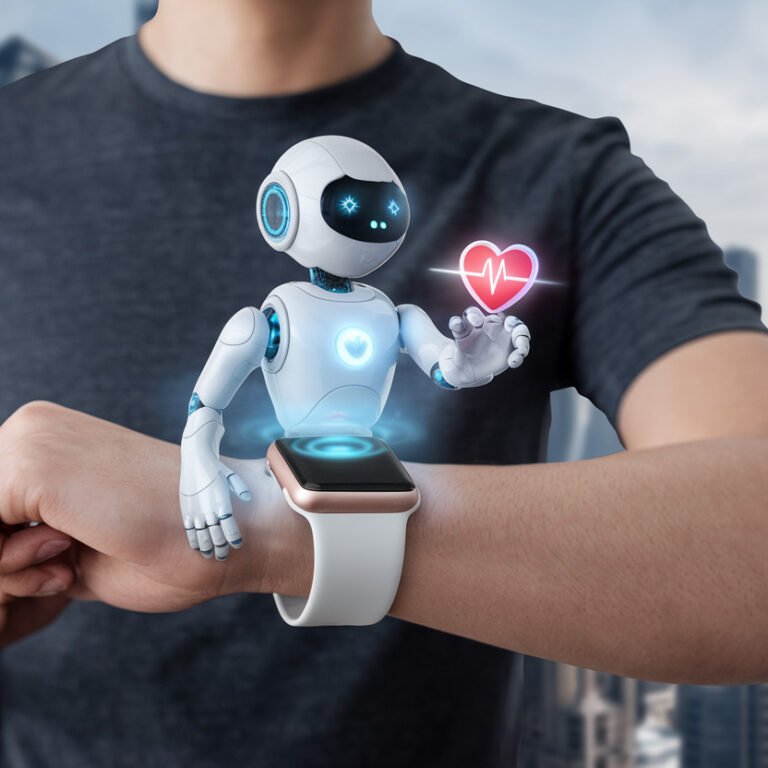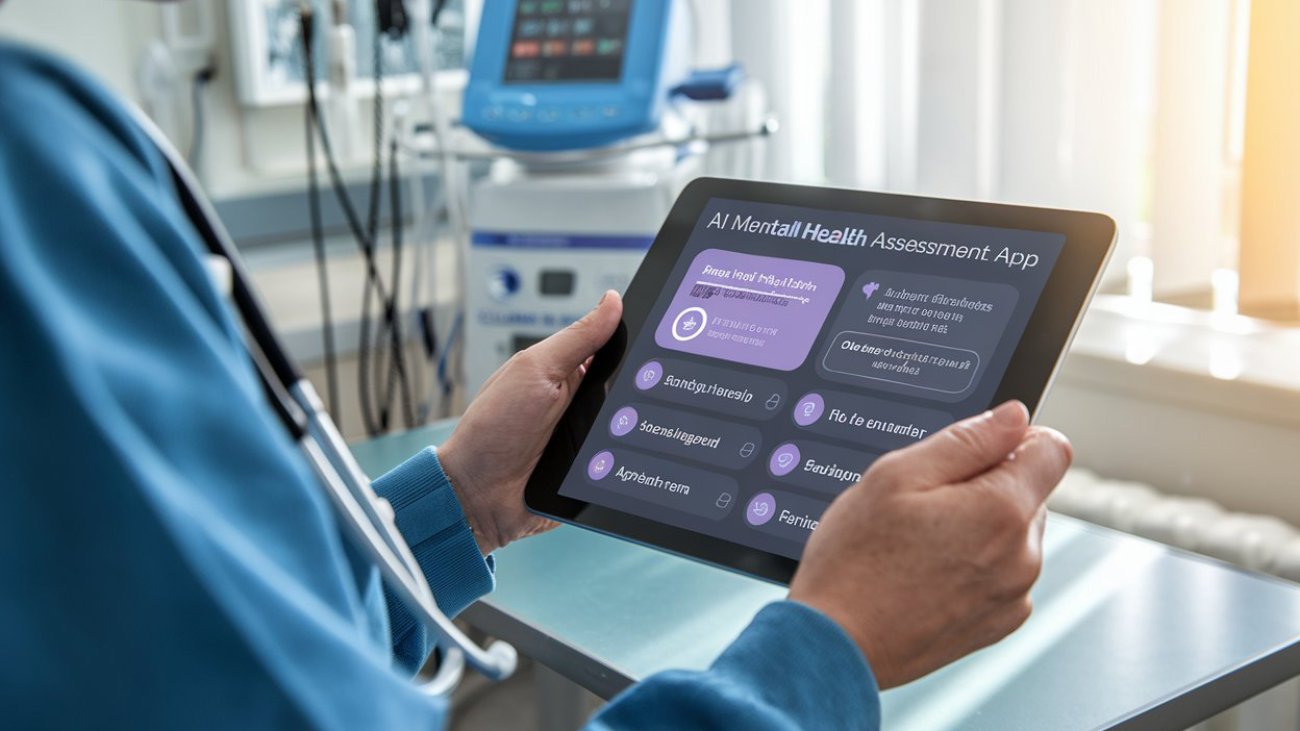As life expectancy increases, preserving cognitive health in seniors has become a critical aspect of aging well. Cognitive decline not only affects memory and daily functioning but also impacts overall quality of life. With advancements in technology, particularly in artificial intelligence (AI) and mental health monitoring, there are new ways to support cognitive health and prevent decline in older adults. This article explores the importance of cognitive health, factors that contribute to decline, and how AI and continuous monitoring play vital roles in prevention.
Understanding Cognitive Decline in Seniors
Cognitive decline refers to a gradual reduction in mental functions, such as memory, reasoning, and decision-making abilities. While some cognitive slowing is a normal part of aging, significant decline can interfere with daily life and may lead to conditions like dementia or Alzheimer’s disease. Various factors, including genetics, lifestyle, physical health, and social connections, influence cognitive health in seniors.

Key Factors Contributing to Cognitive Decline
1. Physical Health Conditions:
Chronic conditions like diabetes, cardiovascular disease, and hypertension can affect brain health. Managing these conditions is crucial for preserving cognitive function.
2. Social Isolation:
Social engagement plays a protective role in mental health. Seniors who are isolated or lack social interactions are at a higher risk for cognitive decline.
3. Poor Nutrition and Physical Inactivity:
Lack of a balanced diet and regular exercise can contribute to physical and cognitive decline. A nutritious diet supports brain health, while exercise stimulates mental well-being.
4. Mental Health Issues:
Depression and anxiety are common among seniors and can lead to cognitive impairments. Mental health care is an essential component of cognitive preservation.
The Role of AI in Cognitive Health Monitoring
Artificial intelligence is transforming how we approach cognitive health in seniors. AI can process large datasets to identify patterns and provide insights that support early detection and personalized intervention for cognitive decline. Here are some ways AI contributes:
: AI-powered mental health assessment tools use machine learning algorithms to analyze behavioral data from seniors. This enables the creation of personalized cognitive health profiles that reflect an individual’s unique cognitive and mental health statu
AI can detect subtle signs of cognitive decline earlier than traditional assessment methods. By identifying patterns and deviations in mental health assessments, AI can highlight areas of concern and prompt early intervention.
Continuous mental health monitoring provides real-time insights into a senior’s cognitive health. AI-driven systems can analyze data over time to detect changes, allowing caregivers to adjust care strategies as needed.

How AI-Powered Mental Health Monitoring Works
AI-powered tools for mental health monitoring often involve wearable devices, mobile applications, or both. These tools collect data on a senior’s cognitive and mental health through daily assessments, behavioral patterns, and physiological indicators. Here’s a step-by-step breakdown of how these systems typically operate:
- Data Collection: The AI system collects daily data from seniors, which may include responses to mental health questions, activity levels, heart rate, and sleep patterns.
- Pattern Analysis: Using machine learning algorithms, the AI assesses the data to establish behavioral baselines for each individual. Any deviations from these baselines may signal early cognitive changes.
- Personalized Insights: The system generates insights and recommendations based on the data analysis, helping caregivers and healthcare providers create tailored intervention plans.
- Alerts for Caregivers: If the AI detects significant changes, such as increased anxiety or signs of memory issues, it sends alerts to caregivers or family members, enabling timely interventions.
Benefits of AI-Based Cognitive Health Monitoring
| # | Benefit | Description |
|---|---|---|
| 1 | Early Intervention | By identifying potential cognitive decline early, AI enables caregivers and healthcare providers to implement preventive measures sooner, reducing the risk of rapid decline. |
| 2 | Reduced Healthcare Costs | Continuous monitoring can lower the need for extensive healthcare services by addressing issues early. This can be especially beneficial in home care settings, where regular assessments might be challenging. |
| 3 | Enhanced Quality of Life | AI-based monitoring promotes mental well-being by providing seniors with ongoing support and personalized care. This can improve their confidence, independence, and overall quality of life. |
Practical Tips for Preventing Cognitive Decline
Beyond AI-powered solutions, seniors and caregivers can adopt several strategies to protect cognitive health:
- Stay Physically Active: Regular exercise improves blood flow to the brain, supporting cognitive function.
- Eat a Balanced Diet: Foods rich in antioxidants, omega-3 fatty acids, and vitamins are essential for brain health.
- Engage in Mental Stimulation: Activities like reading, puzzles, and learning new skills help keep the mind active.
- Maintain Social Connections: Social engagement reduces stress and promotes cognitive health.
- Monitor Health Conditions: Regular check-ups and managing chronic conditions play a crucial role in preventing cognitive decline.
The Future of AI in Cognitive Health

The application of AI in cognitive health is still evolving. Future developments may include improved algorithms for predictive analytics, more advanced wearable devices for continuous monitoring, and integration with virtual reality to engage seniors in cognitive exercises. AI has the potential to redefine mental health care for seniors by making cognitive assessments more accessible and personalized.
Conclusion
AI-powered mental health monitoring represents a significant advancement in preserving cognitive health for seniors. By providing early detection, personalized care, and continuous support, AI enables proactive interventions that can prevent or delay cognitive decline. As technology advances, AI will continue to play an increasingly vital role in senior mental wellness, helping them enjoy a higher quality of life in their golden years.
